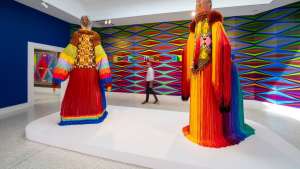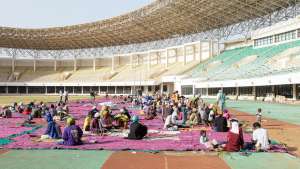Welcome to Future Lab Africa. Artist Jepchumba will be your guide. Originally from Kenya, this global nomad-cum-digital enthusiast is the perfect host for this series of podcast conversations with African artists working in the digital space.
Future Lab Africa is an interactive platform showcasing digital work, probing critical issues around this ever-morphing landscape and inviting the public to engage, too. It grew out of Post African Futures, an exhibition at the Goodman Gallery in Johannesburg, as a research collaboration between its curator, Tegan Bristow, and Jepchumba.
This is the second podcast in the series. In the first, Bristow and Jepchumba introduce us to the world of digital art in Africa with a conversation about Bristow’s research on “cultures of technology” in Nairobi, Lagos and Johannsburg.
This episode features Tabita Rezaire, a French-Guyanese and Danish new media artist based in Johannesburg. She holds a master’s degree in something called “Artist Moving Image” from Central Saint Martins College in London.
Clearly she knows her stuff. First off the bat, she corrects Jepchumba about the definition of a hologram. “There is no actual technology in 2015 that allows a floating image out of nowhere that we consider a hologram. It’s not possible,” says Rezaire.
As Jepchumba tells us, Rezaire is interested in the political aesthetics of resistance on the internet and “is currently busy decolonising cyberspace”.
She brings an activist orientation to her work producing videos and web-platforms, curating screenings, giving talks and leading workshops.







